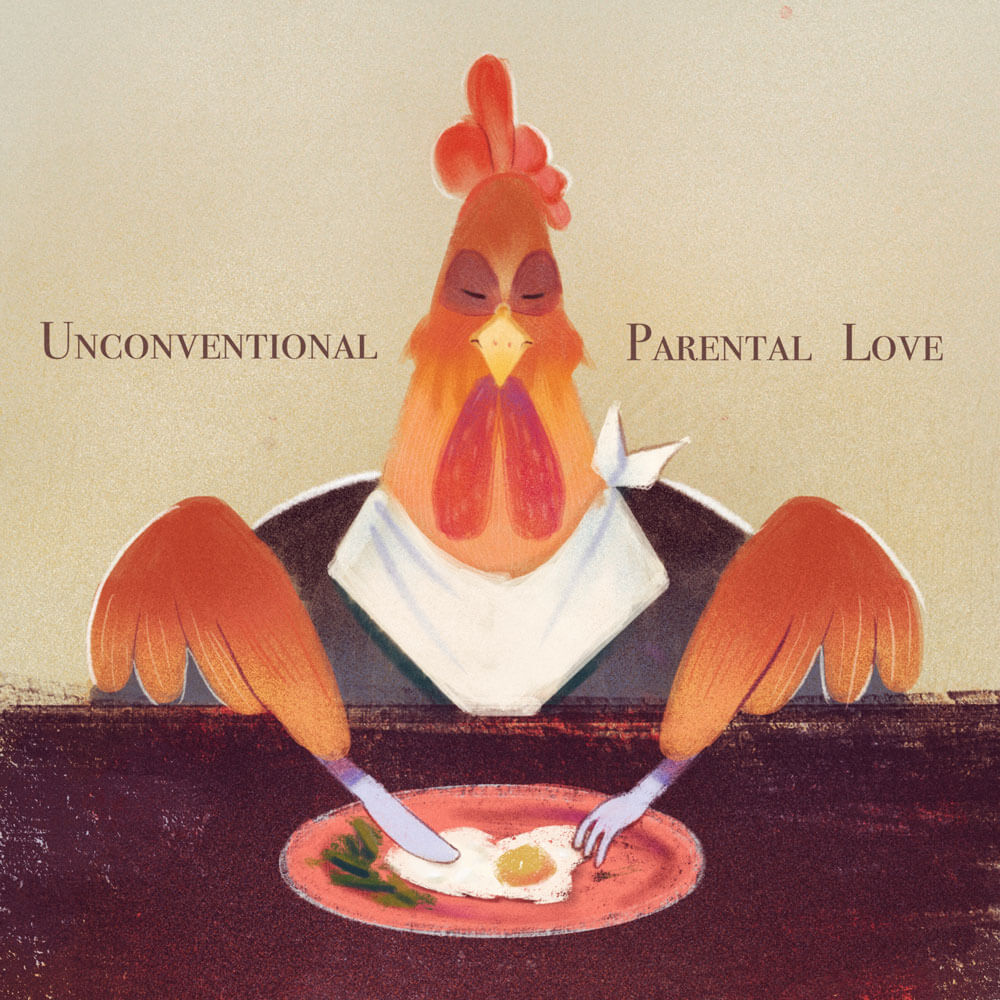
Written by Hasan Galib
Illustrated by Jenny Zhang
In the warm waters of a tropical coral reef, a damselfish dad looks after his cluster of eggs. His job is to keep fanning his fins over the eggs to make sure they get enough oxygen to grow and hatch into baby fish, also known as ‘fries’. Suddenly, a strong paternal instinct kicks in and it tells him to eat. He gulps down not one, not two, but a quarter of all the eggs, and then he goes back to fanning the rest like the caring father he is.
It might come as a surprise but the damselfish is not the only animal that participates in filial cannibalism. Once thought to be a rare response to starvation and extreme stress, scientists now consider eating some of your children to be a normal practice of parental care and it’s been seen in many different animal species from crocodiles to rabbits.
So why eat your offspring? While it may seem counterproductive, filial cannibalism can promote the survival of the species as a whole. Most fishes, insects and amphibians lay eggs in clutches and the parents are forced to look after and provide for many offspring at the same time. This is difficult in the face of predation and limited food sources and can take a toll on the parents themselves, costing them their survival. On top of that, overcrowding is a major threat to the survival of the young because it forces them to compete for resources and helps diseases spread faster. Because of this, sacrificing a few children so the rest can live can be an alternate form of tough love.
Researchers at the University of Tennessee and the University of Oxford constructed a mathematical model for the spread of a gene that promotes filial cannibalism within a population, asking to what extent is filial cannibalism supported and maintained by evolution? It turns out over the course of two generations, this gene overtook the whole population and eating the young became normal!
It’s not always possible for parents to predict the environment that their offspring will end up in. When resources are scarce, parents can either have a lot of offspring with each having a small share of resources—resulting in lower quality offspring who will probably die—or they can eliminate the weaker offspring so that the stronger ones get more resources and develop properly to ensure their survival in the wild.
All in all, filial cannibalism is as much a part of life in the animal kingdom as other more traditional parenting behaviour, so for the eggs that do get to live on, the damselfish dad might as well get a mug that says ‘world’s best dad’.
Sources:
- Davenport, M. E., Bonsall, M. B., & Klug, H. (2019). Unconventional Care: Offspring Abandonment and Filial Cannibalism Can Function as Forms of Parental Care. Frontiers in Ecology and Evolution, 7. doi: 10.3389/fevo.2019.00113